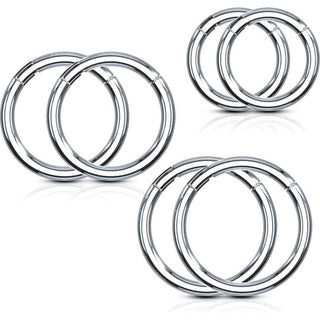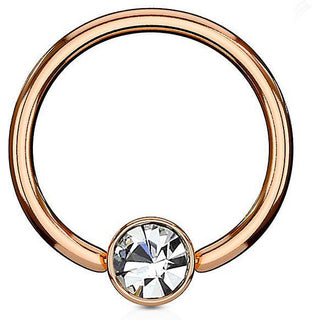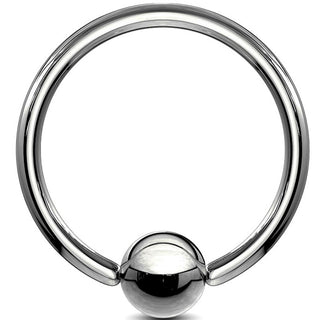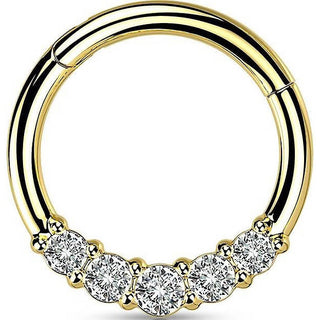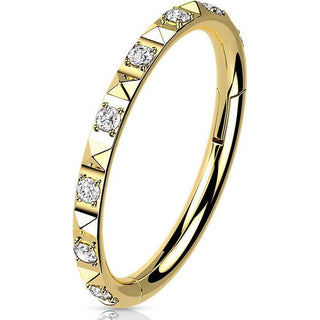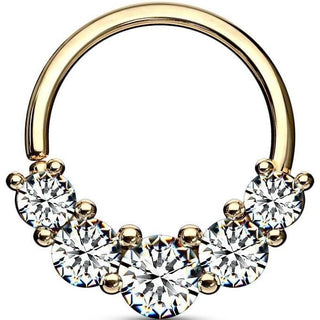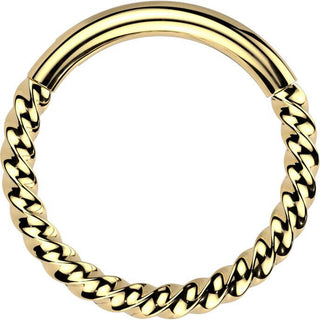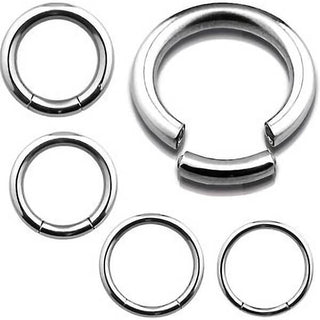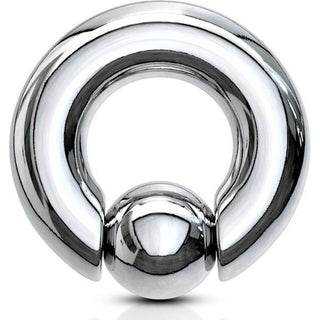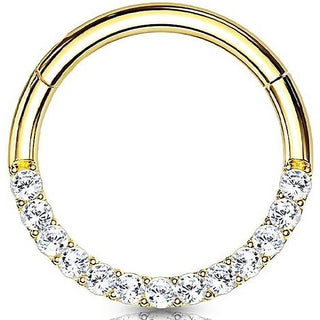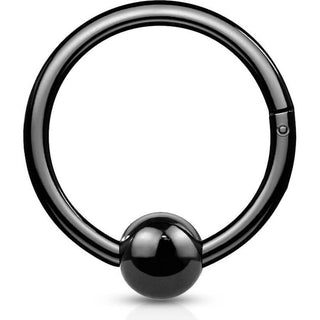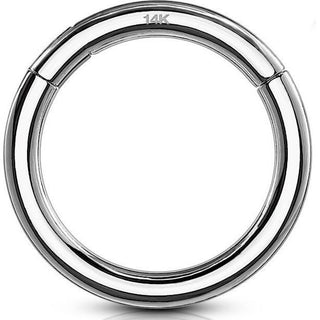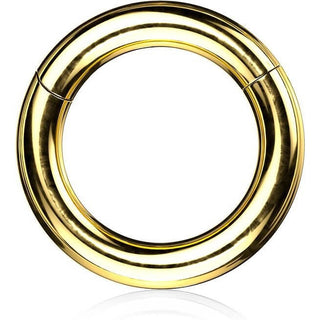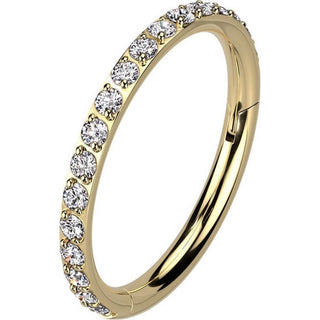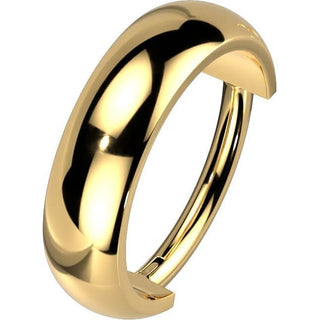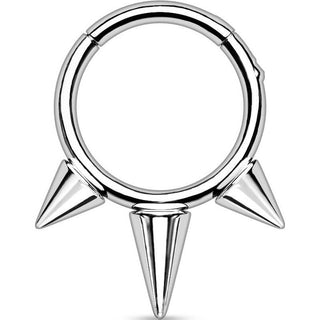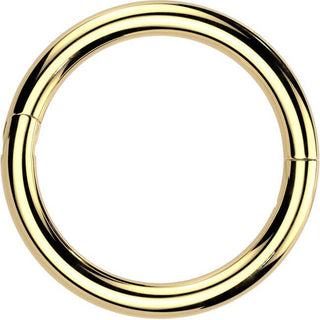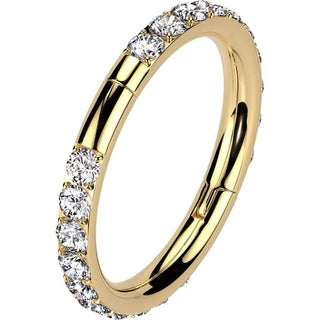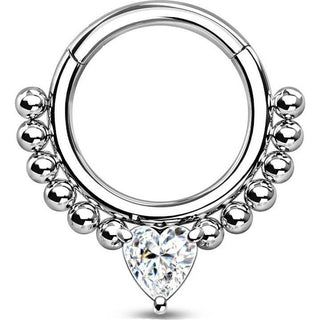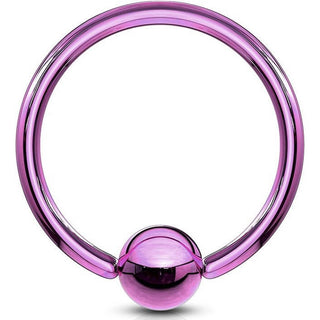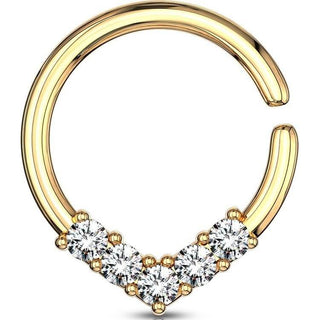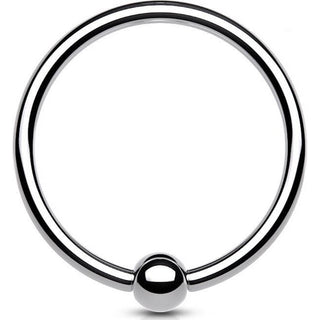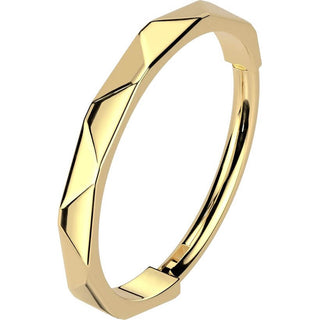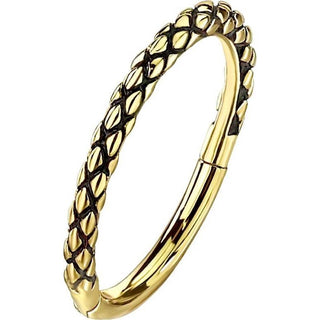Orbital Piercing
Discover our exceptional range of over 400 Orbital Piercings made from materials like Titanium and 316L Surgical Steel. Enjoy great prices and excellent customer service at our shop.
Orbital Piercing
The orbital piercing is a somewhat rarer type of Ear Piercing in which two piercing holes close together are connected with a ring. The orbital can be pierced in different places of the ear and offers different as well as extraordinary looks depending on the place. Therefore, the orbital piercing is a very special and diverse ear piercing variant.
In our shop we offer you a large selection of Piercing Ring with which you can design your orbital piercing according to your own wishes. Segmentring Piercing as well as BCR rings are most commonly used for the orbital. Piercing rings in different colours as well as balls with or without zirconia or opal stones allow many orbital design variations.
In this clear guide you will learn everything you need to know about orbital piercing. All important topics like piercing, care and risks of the orbital are covered here.
Orbital variations
The orbital piercing has no single fixed location and can be pierced almost anywhere on the ear. This results in many possible orbital variations such as a Conch Orbital or Snug Orbital. Especially popular orbital variations are the Helix Orbital and the Lobe Orbital. Orbital piercings can also be used to combine different types of ear piercing. For example, individual looks can be created with a Rook and Forward Helix Orbital, a Tragus and Anti-Tragus Orbital or a Conch and Lobe Orbital Piercing. Therefore, this versatile piercing type is the perfect complement to the Curated Ear.
A particularly rare and unusual orbital variation is the Triple Orbital. Here three ear piercing holes are connected with a ring. A possible triple orbital variation would be the connection of a rook piercing hole with two forward helix holes.
An already healed ear piercing can also be extended to an orbital piercing with a second ear piercing. Two healed ear piercings can also be joined together to form an orbital piercing, provided they are close enough together. Orbital piercings can also be worn on other parts of the body, such as the nose. However, this is very rare, as orbitals on the ear are the most popular and well-known.
Orbital piercing jewellery
Orbital piercings are mainly worn with piercing rings. However, during healing, the later orbital can be worn with two individual pins to make healing easier. If you no longer like the look of the orbital, you can simply remove the ring and replace it with two individual rings or plugs.
The orbital can be decorated with different types of piercing rings such as segment rings, BCR rings or horseshoes. Here the jewellery can be chosen according to your own preferences. BCR piercing rings with plain metal balls as well as balls set with zirconia or opal stones make cool looks possible. Segment rings provide a particularly seamless look. Rings in unusual designs such as rope texture or double rows offer unique orbital looks. If you don't want to wear piercing rings, you can also adorn the Orbital with a plain banana.
The sizes of Orbital jewellery depend on the individual wishes of the wearer. Both dainty orbital jewellery in small sizes or diameters and large diameters and thicknesses for strong looks are possible here.
The most common materials for orbital jewellery are surgical steel, titanium and gold. All three materials offer different advantages. Titanium and gold, for example, are particularly allergy friendly and high quality, while surgical steel can offer high quality at affordable prices.
Orbital Piercing
Since the orbital piercing connects two ear piercing holes, it is especially important to have the piercing done only by a professional and experienced piercer. This is because the distance between the two piercing holes must be chosen and pierced precisely by the piercer so that the ear holes can be connected with a ring without any problems. If the distance is not correct, the usual ring sizes may not fit. The distance between the ear holes also determines the orbital look: a small distance between the ear holes gives a sweet and simple look, while a large distance guarantees a striking piercing look. Therefore, it is best to think about how the orbital should look later on before the piercing.
The piercing itself is similar to many other piercing types. The piercer will disinfect and mark the area. After the wearer's consent, the marked areas are pierced with a sterile piercing needle in a quick movement.
The connecting ring can be inserted directly as the initial jewellery. However, two individual plugs offer more advantages as initial jewellery. Healing of the orbital piercing holes is much easier with piercing studs and the risk of complications such as venison is reduced. This procedure does require some patience, as the initial plugs should only be exchanged for a ring after complete healing. In return, however, healing and care are much more pleasant.
The pain of an orbital piercing depends on the area of the ear chosen. Lobe orbitals are less painful as they only pierce through the soft tissue of the earlobe. Cartilage orbitals, on the other hand, cause much more pain due to the hard cartilage tissue. The type of cartilage piercing is also important, because some areas have thinner cartilage tissue and others have very thick cartilage tissue. In general, orbitals where both holes are pierced at the same time are slightly more painful. In contrast, orbital piercings that connect a freshly pierced ear piercing to an existing piercing hole are slightly less painful. But here, too, it depends on the pierced area and the individual sensation of pain. Therefore, no general statement can be made here.
The question about the costs of an orbital piercing also cannot be answered in a general way. Besides the piercing studio and the region, the individual location of the orbital also plays a major role. However, since two ear holes are pierced at the same time, the price is in the upper range.
Orbital care and healing
The healing time of an orbital can vary greatly, as healing depends on the location of the ear. An orbital on the earlobe has a short healing time of about 4 to 8 weeks, while an orbital piercing through cartilage tissue takes much longer to heal. The typical healing time for ear cartilage piercings is about 6 to 9 months.
In general, the orbital should be cleaned twice a day with disinfected hands for the first few weeks after piercing. Apart from that, one should not touch or play with the new piercings excessively to avoid irritation of the puncture canal. For this reason, saunas, solariums and swimming pools should also not be visited during the first weeks after the piercing.
When sleeping, lying directly on the pierced ear should be avoided. Clothing and hair can get caught on the jewellery, so long hair should be worn in a ponytail or chignon and clothing should always be taken on and off carefully. Dyeing hair is also a no-go during the first few weeks, as the aggressive chemicals of the dye can negatively affect healing. Depending on the position of the orbital, headphones should also be avoided during the healing phase.
Risks
As with all types of piercing, some unpleasant piercing consequences can occur with orbital piercing. The greatest risk is inflammation. This is indicated by severe pain, warming of the area and greenish or yellowish pus. If you notice these signs of inflammation, a visit to your piercer or doctor is absolutely necessary.
Especially with an orbital, where both holes are pierced at the same time, an experienced piercer is important. If the piercer does not determine the distance between the piercing holes correctly, the orbital piercing can quickly look crooked. In this case, the jewellery usually does not sit properly either and can cause piercing complications such as the piercing growing out or wild flesh. With cartilage piercings there is anyway an increased risk of the formation of wild flesh. Cartilage orbitals should therefore be cared for particularly carefully.



